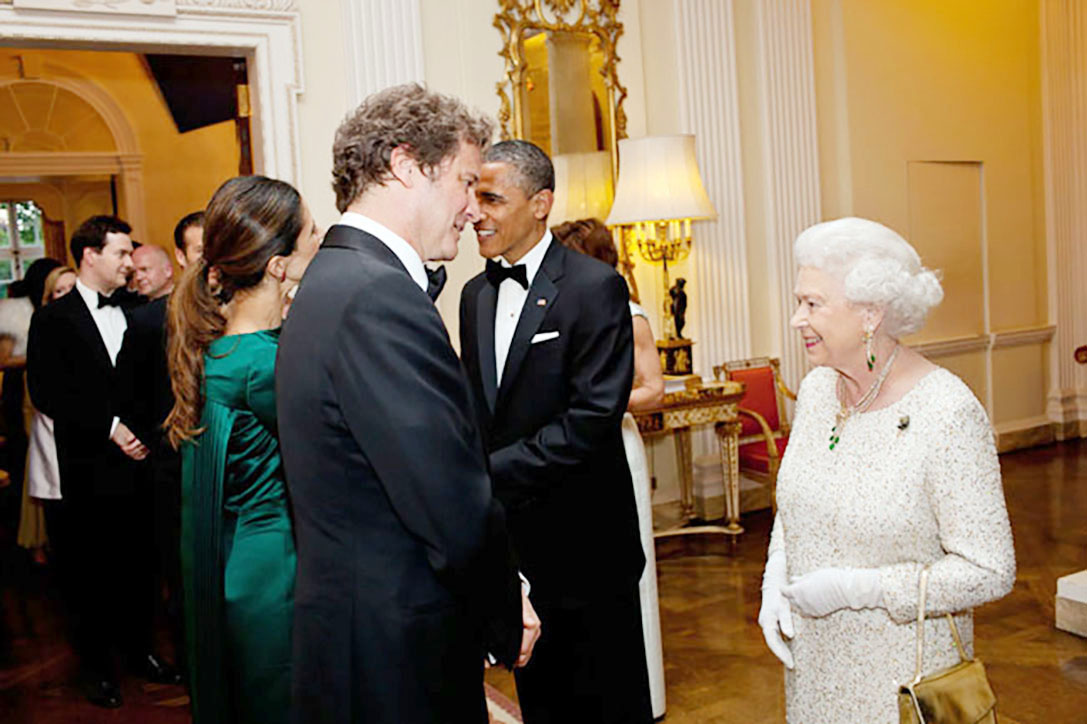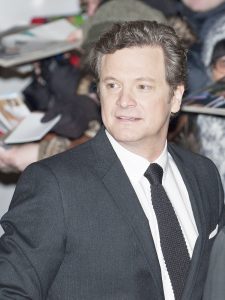Firth was born in the village of Grayshott, Hampshire to parents who were academics and teachers. His mother, Shirley Jean (née Rolles), was a comparative religion lecturer at King Alfred’s College (now the University of Winchester); and his father, David Norman Lewis Firth, was a history lecturer at King Alfred’s and education officer for the Nigerian Government.
Firth is the eldest of three children; his sister Kate is an actress and voice coach, and his brother Jonathan is also an actor.
His maternal grandparents were Congregationalist ministers, and his paternal grandfather was an Anglican priest. They did overseas missionary work, and both of his parents were born and spent part of their childhoods in India.
As a child, Firth frequently travelled due to his parents’ work, spending some years in Nigeria.
He also lived in St. Louis, Missouri when he was 11, which he has described as “a difficult time”.
On returning to England, he attended the Montgomery of Alamein Secondary School (now Kings’ School), which at the time was a state comprehensive school in Winchester, Hampshire.
He was still an outsider and the target of bullying. To counter this, he adopted the local working-class Hampshire accent and copied his schoolmates’ lack of interest in schoolwork.
Firth began attending drama workshops at the age of 10, and by 14 had decided to be a professional actor.
However, at Barton Peveril Sixth Form College in Eastleigh, he was imbued with a love of English literature by an enthusiastic teacher, Penny Edwards, and has said that his two years there were among the happiest of his life.
After his sixth form years, Firth moved to London and joined the National Youth Theatre, where he made many contacts and got a job in the wardrobe department at the National Theatre.
He subsequently studied at Drama Centre London.
Firth has been a longstanding supporter of Survival International, a non-governmental organization that defends the rights of tribal peoples.
He has also backed a Survival International campaign to press the Brazilian government to take more decisive action in defence of the Awá-Guajá people, whose land and livelihood are critically threatened by the actions of loggers.
As a supporter of the Refugee Council, Firth was involved in a campaign to stop the deportation of a group of 42 Congolese asylum seekers, expressing concerns in open letters to The Independent and The Guardian that they faced being murdered on their return to the Democratic Republic of Congo.
Firth, along with other celebrities, has been involved in the Oxfam global campaign Make Trade Fair, focusing on trade practices considered especially unfair to third-world producers, including dumping, high import tariffs, and labour rights.
He and some collaborators opened Eco, an eco-friendly shop in West London, which offers fair-trade and eco-friendly goods, and expert advice on making spaces more energy efficient. In October 2009, at the London Film Festival, he launched a film and political activism website, bright wide (since decommissioned), with his wife Livia.
Firth has received numerous awards, including an Academy Award, Golden Globe Award, British Academy Film Award, and Screen Actors Guild Award for his performance as King George VI in Tom Hooper’s historical drama The King’s Speech (2010).
He received an honorary doctorate on 19 October 2007 from the University of Winchester.
On 13 January 2011, he was presented with the 2,429th star on the Hollywood Walk of Fame.
In April 2011, Time included him in its list of the World’s 100 Most Influential People.
He was made a Freeman of the City of London on 8 March 2012 and was awarded an honorary fellowship by the University of the Arts London in 2012.
Firth was appointed Commander of the Order of the British Empire (CBE) in the 2011 Queen’s Birthday Honours for services to drama.



